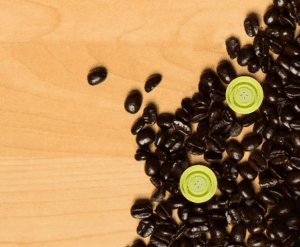 Plastic is everywhere. It is almost impossible to pick up a product these days that does not have some amount of plastic in it. There’s a good reason for this, though – plastic is relatively inexpensive, durable, versatile, and attractive. It comes in a variety of compounds, formulations, textures, colors, and strengths. Plastics are used in virtually every industry and application, including healthcare, toys, electronics, transportation, packaging, clothing, furnishings, buildings, and others far too numerous to list here.
Plastic is everywhere. It is almost impossible to pick up a product these days that does not have some amount of plastic in it. There’s a good reason for this, though – plastic is relatively inexpensive, durable, versatile, and attractive. It comes in a variety of compounds, formulations, textures, colors, and strengths. Plastics are used in virtually every industry and application, including healthcare, toys, electronics, transportation, packaging, clothing, furnishings, buildings, and others far too numerous to list here.
But plastic has its drawbacks, too.
Conventional plastics are made from non-renewable petroleum and natural gas resources. Their manufacturing processes are wasteful and not very environmentally-friendly. And while most plastics can be recycled, very few are. In fact, plastic is one of the fastest growing components of the general waste stream and one of the most expensive discarded materials to manage.
There is a solution – bioplastics.
What are bioplastics? They’re any plastic in which all of the carbon used in the manufacturing process is derived from renewable feedstocks such as corn, rice, palm fiber, potatoes, wood cellulose, and other plants. The good news is that these earth-friendly plastics can be easily recycled and even composted, just like food and yard waste. Bioplastics break down into nutrient-rich components good for the soil and raising more plants.
UrthPact CEO Paul Boudreau has been closely examining various ways to manufacture and utilize plastics made from plants, not petroleum, and has discovered that bioplastics such as those used to produce products here at UrthPact share many of the same properties of traditional plastics, just not the environmentally-unfriendly ones. According to Paul Boudreau, bioplastic can provide the same look, feel, and functionality of conventional petroleum-based plastics, but instead of lingering for centuries in landfills, bioplastic can be composted and safely converted into soil components within as little as three months.
Over the next few months we’ll be taking a closer look at bioplastics with Paul Boudreau and posting some interesting facts in this blog. Stay tuned!



